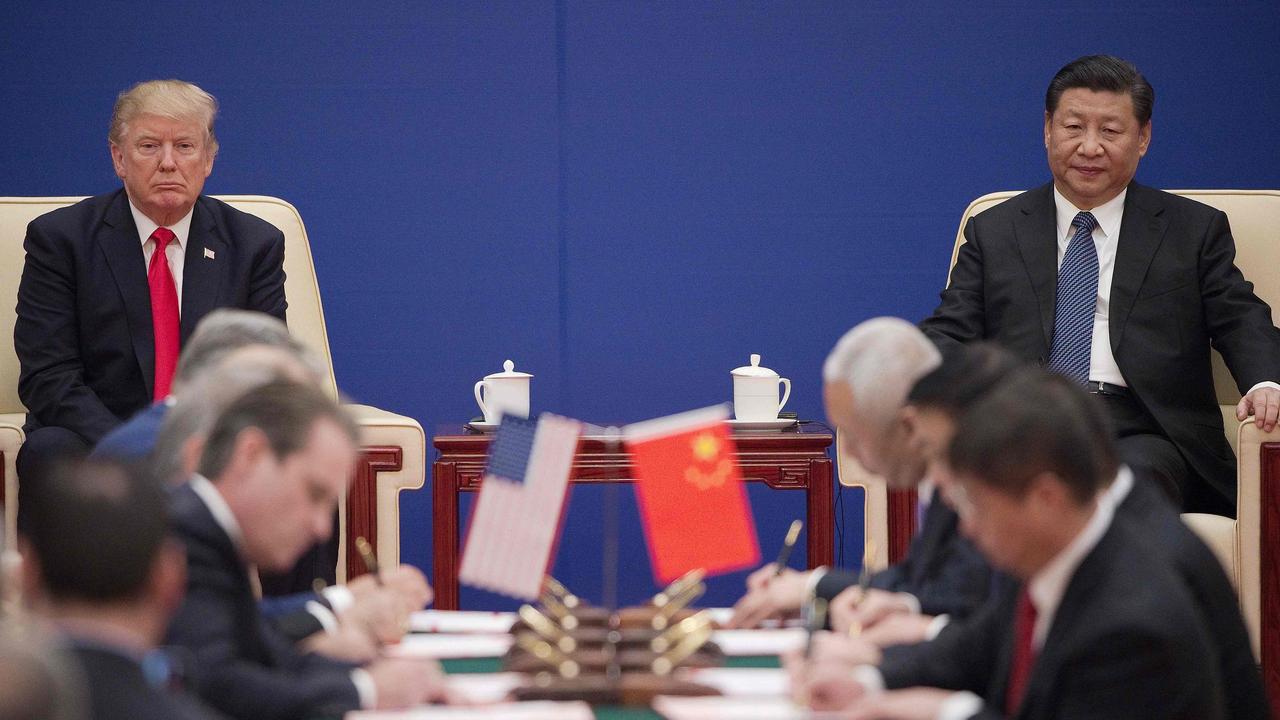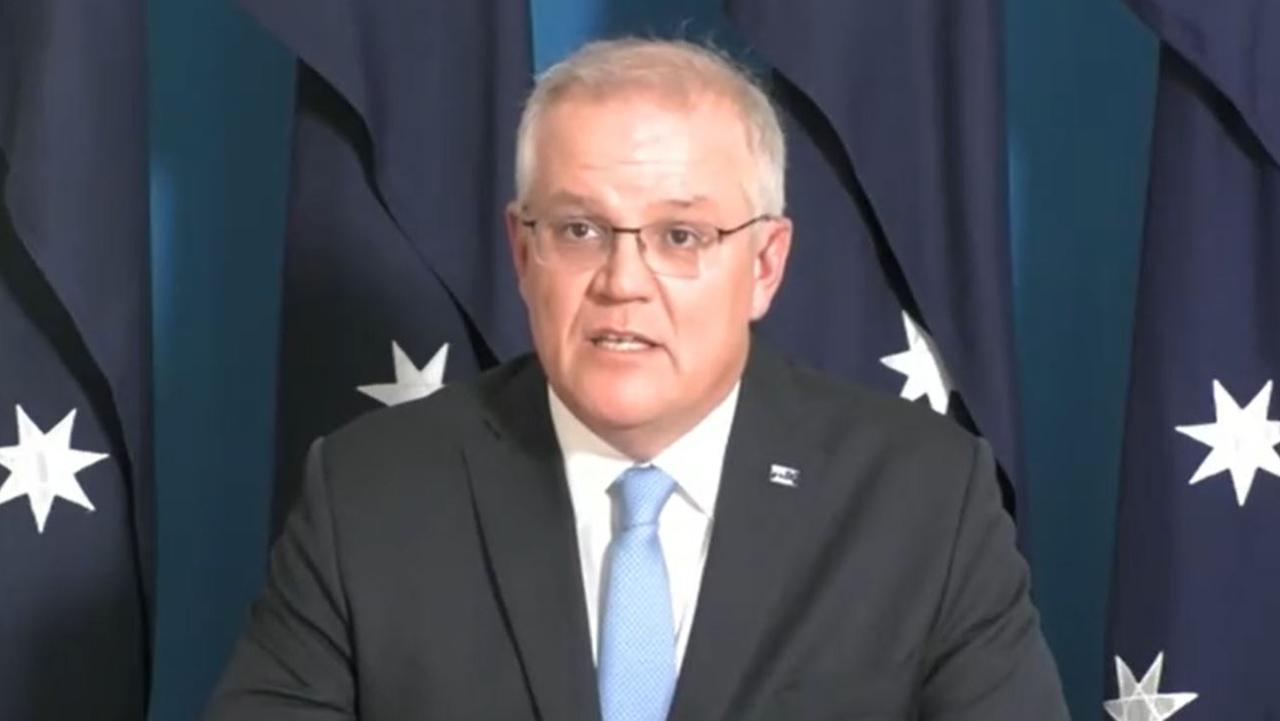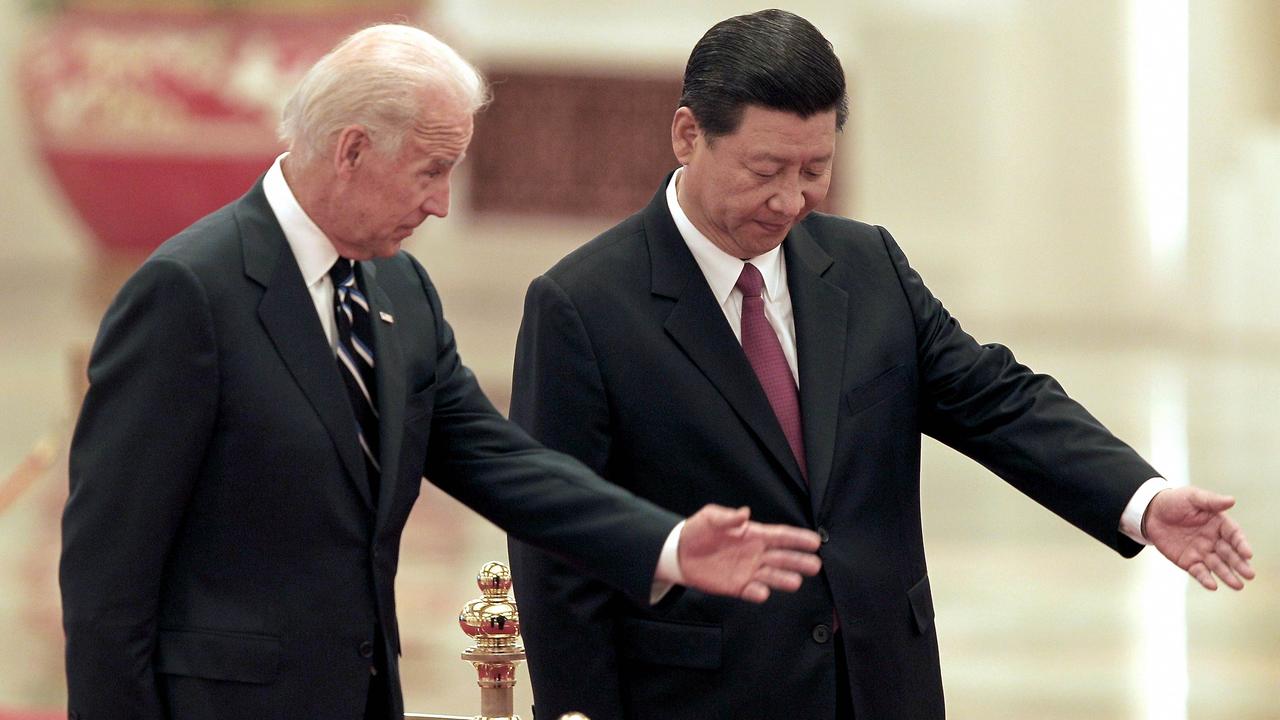Donald Trump’s final stand against China will help Australia’s trade war
“China is trying to beat countries into submission,” said a White House official. Now the US is standing with Australia to combat China’s “coercive” tactics.
After almost four years of holding the most powerful office the world, US President Donald Trump’s time in power has entered its final chapter.
Despite the President’s attempts to contest the result of the recent presidential election, Mr Trump now has less than 50 days remaining in office.
With the reins of power set to be transferred to president-elect Joe Biden on January 20, Mr Trump is looking to leave a long impression on US foreign policy, which will be felt long after he shuts the door to the Oval Office for the final time.
One of the key elements of Trump’s push to leave a lasting legacy is his attempts to ensure that the US remains tough on China, even after the Biden administration takes over responsibility for foreign policy.
RELATED: US vows to stand with Australia against China

RELATED: America ramps up moves against China
This campaign is defined by a number of different approaches, from strengthening diplomatic and military ties with Taiwan and other US allies, to building a multinational consensus on how aggressive Chinese acts should be handled.
As part of the renewed push, the Trump administration has turned its attention towards the punitive trade actions taken by Beijing against Australia.
Beijing’s actions targeting billions of dollars a year in Australian exports, such as coal, wheat and others, is generally viewed as an effort to compel the Morrison Government into a more accommodative stance towards Beijing.
RELATED: US smacks down China over tweet storm

RELATED: Chinese developer boots Aussies off beach
As a result, senior Trump administration officials say they are pushing for new hard-line measures against Beijing, which would culminate in an informal alliance of Western nations who could jointly retaliate if and when China chooses to punitively target a member’s trade with Beijing.
“China is trying to beat countries into submission by egregious economic coercion,” said one senior official. “The West needs to create a system of absorbing collectively the economic punishment from China’s coercive diplomacy and offset the cost.”
AUSTRALIA-CHINA TRADE WAR
Australia is not the first Chinese trade partner to find itself in the crosshairs for insufficiently acquiescing to Beijing’s demands. In a dispute arising over the placement of a THAAD (Terminal High Altitude Area Defence) air defence system on South Korean soil, Beijing has also targeted trade with Seoul.
In that one-sided trade conflict, South Korean automotive, tourist and entertainment industries were targeted among others, costing Seoul billions of dollars.
Yet despite other nations facing China’s ire on trade in the past, the sheer breadth and scale of Beijing’s targeting of Australia’s exports is, in the words of former Prime Minister Kevin Rudd, “the granddaddy of them all”.
Under the Trump administration’s proposal, Chinese boycotts of imports of goods from any member of the informal alliance would result in allied nations either purchasing the goods or providing compensation. Alternatively, the bloc could jointly agree to impose tariffs on China in order to offset the lost trade.
UNITING AGAINST CHINA
As it stands, this potential bloc of nations working together to counter Chinese trade actions is in its conceptual stage. Some nations may not want to draw Beijing’s ire by even considering such an action and others may oppose the use of tariffs in an increasingly free trade world.
The plan may also face opposition from within the newly minted Biden administration, who may want to take a different tack in its dealings with Beijing rather than continuing the current status quo.
However, as former Prime Minister Kevin Rudd pointed out earlier this week in an interview with the ABC: “China runs a real risk of causing allies and the United States to side with Australia in a broader act of solidarity, in responding to China’s muscling up on issues like this.”
For Australia and the Morrison Government the uncertainty surrounding the stance of the new US administration complicates matters significantly.
RELATED: China deal Dan Andrews can’t back out of

TENSIONS ESCALATING
In recent days, tensions between Beijing and Canberra have continued to escalate, as China continues its propaganda offensive against Australia’s international reputation.
While many desire the trade relationship between Australia and China to return to something approaching normality, at this point such heated tensions are not resolved so easily.
Considering Beijing’s 14-item list of grievances with Australia, any attempt made by the government to repair relations between Australia and China is likely to be challenging to say the least.
The list of Beijing’s grievances included several key points that would almost certainly be red lines Australia would resolutely refuse to back down from, such as:
• Our foreign political interference laws
• Speaking out on China’s expansionism in the South China Sea
• Federal government veto power to end state or local government agreements with foreign governments
That is just a few examples of the likely sticking points in the relationship between Beijing and Canberra.
While this move by the Trump administration to build a broad coalition of like-minded nations to counter Chinese trade actions may end up fading away before coming to pass, it also represents an opportunity.
With China’s veritable laundry list of grievances unlikely to be addressed to Beijing’s satisfaction, Australia must seize every opportunity it can to gain a measure of international support in its one-sided trade conflict with China.
Ultimately, Australia doesn’t have a DeLorean with a flux capacitor capable of going back in time and preventing the nation becoming this reliant on Beijing in the first place. So it is imperative that Scott Morrison and our future leaders look for ways to build Australia’s leverage in its trade dealings with Beijing.
By pursuing a coalition of like-minded nations who share Australia’s values and desire to push back against China, the Government can begin to take concrete steps to begin to safeguard the future prosperity of Australia.
Tarric Brooker is a freelance journalist and social commentator | @AvidCommentator



